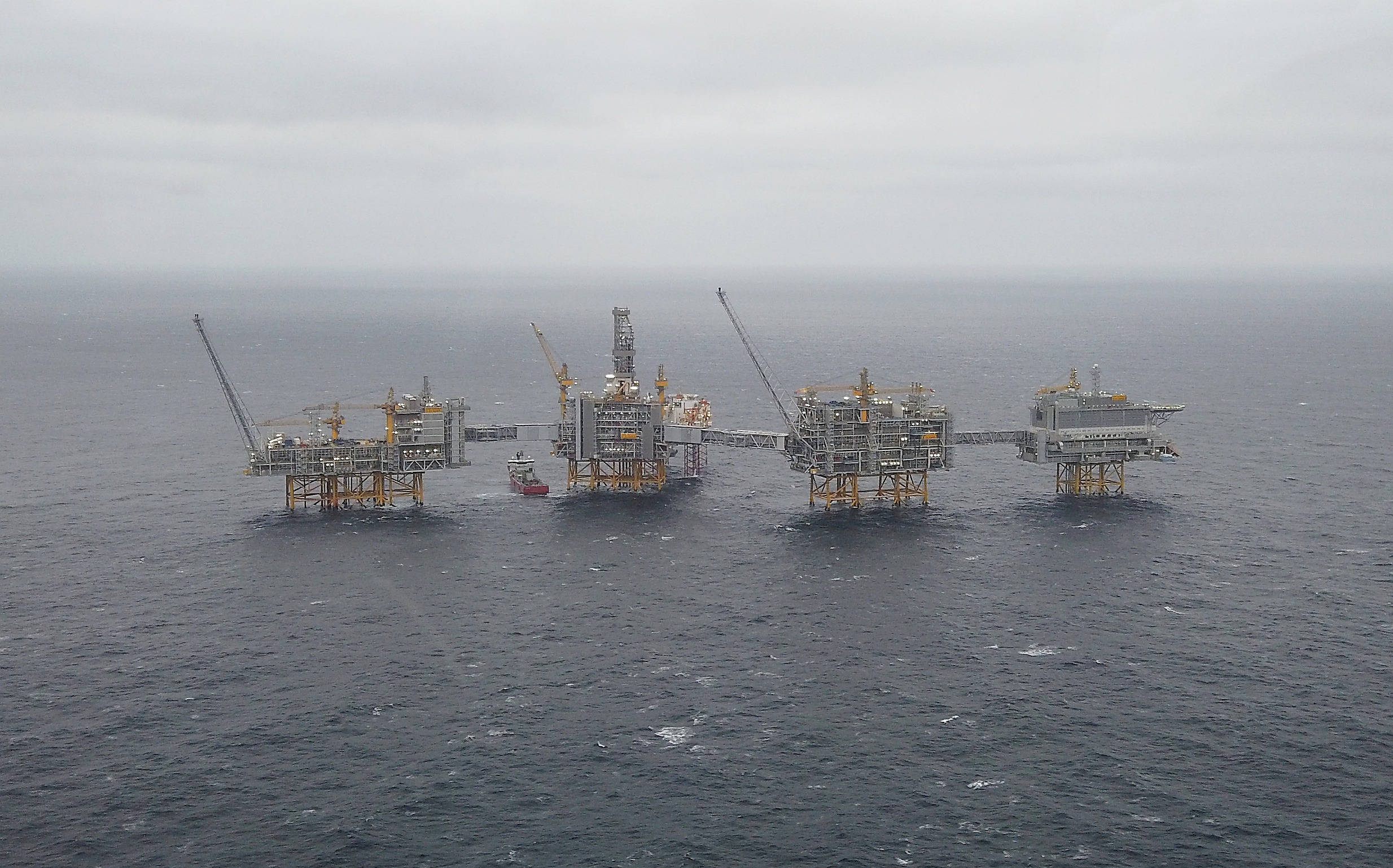How Equinor’s offshore oil rig infection exposes coronavirus dangers for remote sites
Oil workers come from different nations, work in close proximity and share the same helicopters and airports to fly to rigs.

OSLO/LONDON — Equinor reported the oil industry’s first coronavirus infection on an offshore installation on Wednesday, highlighting the challenge in preventing contamination for thousands of workers living in the close quarters on rigs and platforms.
A worker was in isolation on the Norwegian energy firm’s Martin Linge oil and gas platform off Norway where production is due to start at the end of this year, the company said.
It said it would cut activity at the field, but personnel would remain at installations, while workers would reduce meetings and sit further apart in canteens to prevent further contamination.
It has 776 people working on the project spread across three installations, Martin Linge, the Maersk Intrepid drilling rig and the Floatel Endurance accommodation rig.
The company was also waiting for test results from two other people, it said.
The case highlights the risk for the industry, which is already reeling from the crash in crude prices after Russia and Saudi Arabia disagreed over output cuts.
Offshore oil installations, which account for about a quarter of total global oil output, are as vulnerable to the epidemic as cruise ships, investment bank Stifel said in a note.
Oil workers come from different nations, work in close proximity and share the same helicopters and airports to fly to rigs, making it difficult to prevent contamination, it added.
There are relatively few offshore platforms in the Arctic, but some land-based oil and gas production in the region share similar characteristics, such as remoteness, charter travel to a from the site and close quarters that are shared by workers for weeks at a time or longer.
“Our conversations with industry suggest screening measures are being deployed, but as with airports these are likely to be only moderately effective,” Stifel said.
Equinor said it had taken steps before the diagnosis, including asking employees and suppliers to avoid visiting its office or remaining onshore for at least 14 days if they had previously travelled to high-risk areas, such as China or Italy.
The infected person, who had recently been to Austria, arrived on the Martin Linge platform, located 160 km out in the North Sea, on March 4 and was isolated five days later, it said.
Equinor Chief Executive Eldar Saetre told Reuters last week shutting down production would be the “very last resort” if somebody tested positive for coronavirus.
“Business continuity is the concept that we are working on, how can we continue the business,” he said.
Norway, western Europe’s top oil and gas producer, has between 8,000 and 10,000 people working at offshore production platforms, drilling rigs and supply vessels at any given time, industry data shows.
Market impact
If offshore oil output is cut due to coronavirus by at least 10 percent from around 27 million barrels per day (bpd), it would have a bigger impact on global supply than the failed OPEC-Russia deal to cut output by 1.5 million bpd, Stifel said.
Norway produces about 2 percent of global oil and is the second-largest natural gas supplier to Europe after Russia.
Crude streams from Norwegian fields Ekofisk, Oseberg and Troll are included in S&P Global Platts dated Brent price assessment, the global price benchmark.
Rival producers are taking steps to prevent contamination.
Italy’s Eni, whose subsidiary operates the Arctic Goliat field in Norway, said it had taken measures to protect staff, without elaborating.
Repsol, which is developing the Yme oilfield off Norway, said it was following official guidelines for infectious diseases while Austrian OMV said it had contingency plans, but did not disclose any details.
Frode Alfheim, the head of Norway’s largest oil workers union, said he was confident that Equinor could handle the situation, but said the virus posed a significant risk.
“As in the rest of the society, there is a huge risk that it’s going to spread offshore,” he said.
Additional reporting by Shadia Nasralla in London, Isla Binnie in Madrid, Stephen Jewkes in Milan, Kirsti Knolle in Vienna.